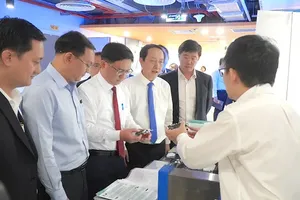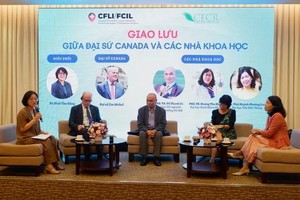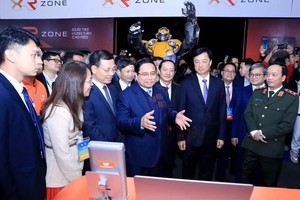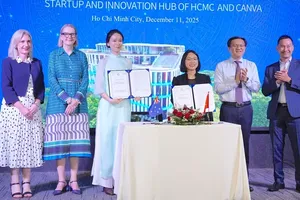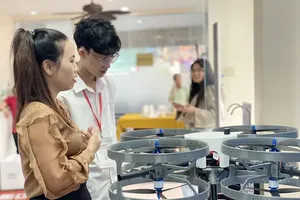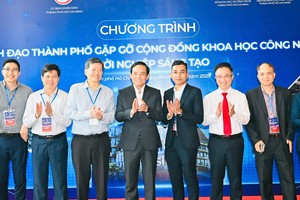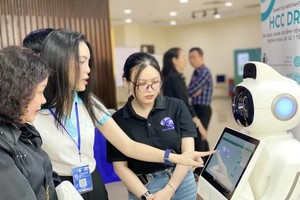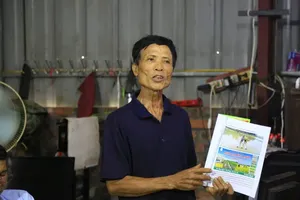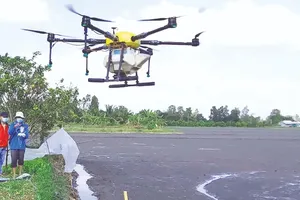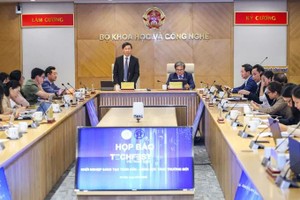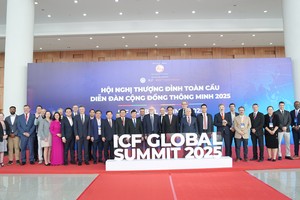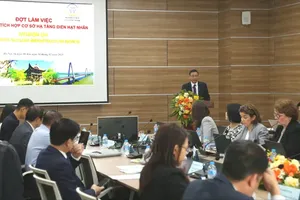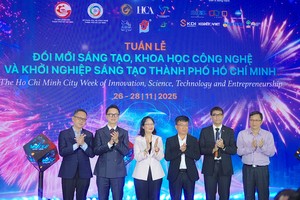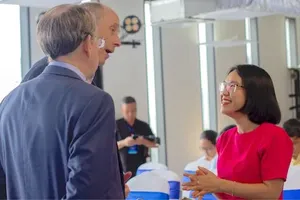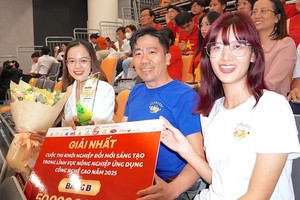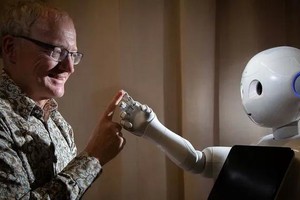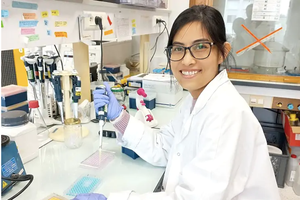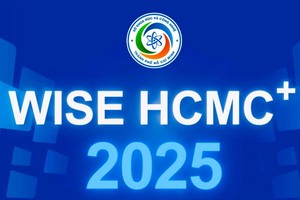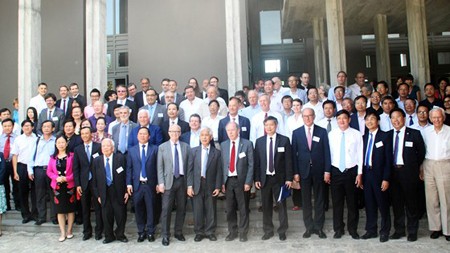
Doctor Tran Thanh Van, founder of the Rencontres du Vietnam, expressed his honor to welcome 150 international scientists to Vietnam, stating that thanks to this most prominent scientific event in the Asia-Pacific area, Vietnamese scientists now have a wonderful chance to connect with their international counterparts. This is also an excellent opportunities for the young in Vietnam to get in touch with and learn from influential scientific figures in the world.
He shared that it was in such a friendly environment that all scientists can freely share their ideas and collaborate to create new ones in order to contribute more to the development of the world.
He also insisted that science is the universal truth which could help in strengthening world peace. The presence of the international scientists and their family in Vietnam has shown that we are all like close friends to come and share scientific ideas in the hope for a better and more developed world.
“Please help yourselves here and feel free to discover more about the country as well as the people in Vietnam! Please come and share with us your valuable and innovative scientific ideas!” exclaimed Dr. Tran Thanh Van to the group of international scientists.
As a representative of the Vietnamese government, Deputy Minister of Science and Technology Pham Cong Tac also welcomed international delegates.
On the occasion of the 25th Anniversary of the Rencontres du Vietnam, the Deputy Minister showed the sincerest appreciation to the valuable support of Dr. Tran Thanh Van to Vietnamese education and science.
“Science is determining the speed of life of all human beings. After 30 years implementing the renovation, Vietnam has achieved impressive results, yet the natural resource of the nation is heavily depleting and the labor cost is too cheap. Therefore, science and technology are becoming key factor for further development to help Vietnam keep up with the world”, stated the Deputy Minister.
On behalf of domestic scientists, Doctor cum Academician Nguyen Van Hieu insisted that Vietnam is seeking the support of global scientists, also showing his deep appreciation to Doctor Tran Thanh Van and his wife for their foundation of ICISE and their great contribution to science and technology in Vietnam to connect it with the world.
Vice Chairman of the Binh Dinh People’s Committee Nguyen Phi Long announced that the province is going to turn Quy Nhon City into a scientific and innovative valley of the nation.
He also agreed that Dr. Tran Thanh Van and his wife are the model of patriotic scholars who are devoting their whole life to science and national development. That is an ideal figure for the young to follow.
At the opening session, the talks of two Nobel-winning keynote speakers received much attention from all participants.
Professor Gerard ‘t Hooft – Nobel winner in Physics – explained why science is more developed in European areas than in Asian ones, saying that it was not because Europeans were more intelligent but because they were more curious and more daring in their discovery. That has led to more inventions. Yet the most important factor is that they are free to express their own viewpoints and to follow their own religious belief, which means freedom for creativity.
He also warned that Vietnam should have a proper educational system to serve its citizens. Even Nobel winning scientists used to be pupils and benefited from appropriate education, including language learning.
“I suggest that all people in the scientific field be master of English language since it is the language of science at the moment. Also, scientific people must know how to raise questions and try their best to answer them. Failing to raise good questions means inability to find good answers, and thus ensuring a definite failure in research”, shared Prof. Gerard ‘t Hooft.
Professor Finn Kydland – Nobel winner in Economy in 2004 – purposely explained the interaction between economy and science in many countries.
“How has the increasing inequality among countries been in the last few decades? I’ve thought about this a lot and realized that there has been a truly huge gap”, he shared.
He also thought that the economy of each nation depends on its politics, including matters like policies or capital. Yet science and technology play an important role in the development.
“When a country cannot have enough policies and regulations to ensure a good environment for scientific and technological development, it cannot develop in a short term and even endure negative effects. For instance, the height of children in a country weak in medical field will be shorter than that in other nations”, said Prof. Finn Kydland.
The speeches of representatives of the Organization for the Prohibition of Chemical Weapons (OPCW) and the European Organization for Nuclear Research (CERN) all insisted that science has no boundaries or regions, and that it is the critical factor to foster the development of each country as well as dialogues to protect world peace.
Taking part in the conference are representatives from Vietnamese ministries and central organizations, the Office of the National Assembly, the Inter-Parliamentary Union, the Organization for the Prohibition of Chemical Weapons (OPCW), and many scientists, including Gerard 't Hoof, Nobel winner in Physics in 1999 and Finn Kydland, Nobel winner in Economy in 2004.
From the afternoon of May 9 until the end of May 10, scientists, politicians, economists, business people, and representatives of international organizations as well as social groups will talk about economic and social effects of science to the society; scientific contributions to the policy making process; science and the 2030 Agenda for Sustainable Development of the United Nations; scientific and development models; science as a tool for multi-cultural and peaceful communication; the relationship between science and Industry 4.0.
